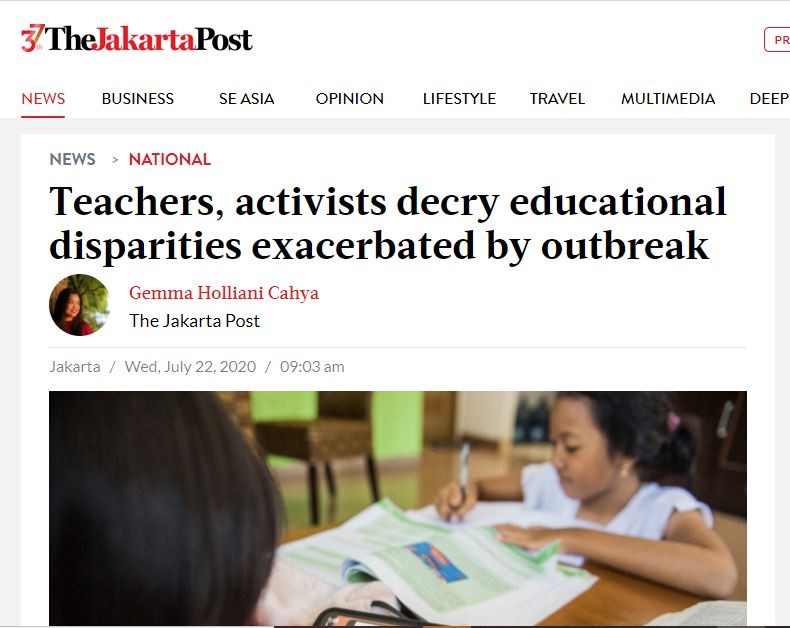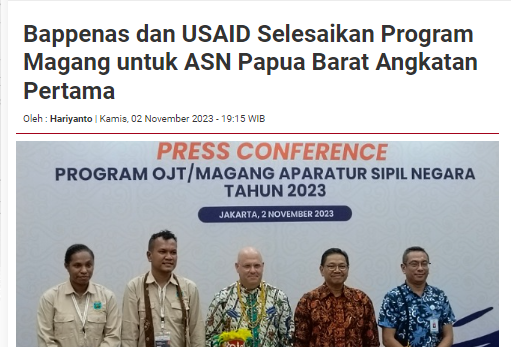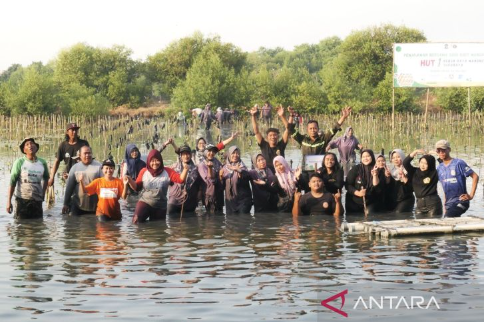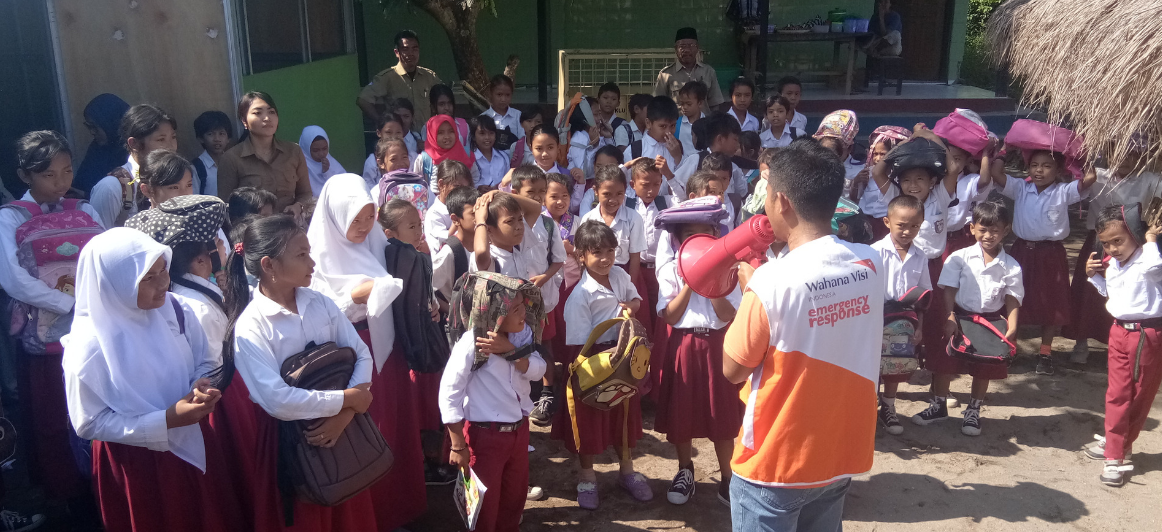THE JAKARTA POST - Teachers, Activists Decry Educational Disparities Exacerbated by Outbreak

Written by: Gemma Holliani Cahya
The Jakarta Post
Jakarta/Wed, July 22, 2020/
As four junior high schoolers waded across a fast flowing river on their way to school, they struggled to keep their balance against the force of the current. Once the first student had made it across, she stretched out her hands to help her friends climb up the bank.
By the time they had all reached the other side, their uniforms and bags were soaking wet. A video of them crossing the river has gone viral on social media in the past few days after the students’ English teacher, Weto "Lissa" Wailissahalaong, 32, recorded their treacherous journey and shared the video on Facebook. In the background, she can be heard screaming to the girls to "hold on to each other".
Such dangers are part of school life for some students of SMP 16 East Seram state junior high school students in Maluku. Lissa told The Jakarta Post on Tuesday that students from Tobo village had to walk along the coast and cross several rivers every day because the only road connecting Tobo village and Batuasah village – where the school is located – was “in a very poor condition”.
It takes the students around an hour to reach the school each day, which is about three kilometers from Tobo. Batuasah and Tobo villages are located in the one of the few COVID-19 low-risk areas, or “green-zones”, in the nation where school are allowed to reopen. But there is no secondary school in Tobo, so most families send their children to the school in Batuasah.
“Our school reopened on July 13. Before that, we visited the students at their homes, one by one, because there is no internet connection in our village," said Lissa, who has been teaching at the school for four years. "Most of the students here are also from low income families who cannot afford gadgets, so we can’t do online learning."
“The situation has been like this for years. […] We really need the government to fix the road and build bridges because there are many rivers in these parts," she said. "The students are so excited to go to school, but they are also often too tired once they get to class, or fall ill, because of the arduous journey."
It is not the first time the nation has seen footage or heard stories of students, especially from rural areas, having to overcome dangerous situations just to go to school, highlighting how disparities in development and wealth have long denied many young people of their right to education.
For the past four months, more than 60 million students across the nation have been forced to study from home during the COVID-19 pandemic. While online learning has become the new norm during the pandemic, many students, like those in East Seram, have not been able to participate because of the country’s digital divide or because they even lack access to electricity. This year, for the first time ever, National Children’s Day will be commemorated virtually on July 23.
Humanitarian organization Wahana Visi Indonesia has compiled 170 letters written by children in rural Indonesia to President Joko “Jokowi” Widodo about their thoughts on living through the pandemic. “We cannot study. Unlike our friends in the city, we cannot do online learning,” Ririn, 12, from South Nias regency wrote. “And, during this pandemic, my parents have had a hard time finding money for daily supplies.”
Another student, eighth grader Keti from Asmat, Papua, said, “I want to study but there is no internet in my village. I want to read, but there are no books.”
Wahana Visi advocacy manager Junito Drias said he hoped that Jokowi would read the letters so that he and his administration could gain a better understanding of what children in remote areas were going through and could issue policies to address their problems. Children’s rights activists have encouraged parents to be more active in supervising their children at home while schools were closed down.
They also urged the government to act responsibly and address the issues that prevented many students from accessing education during the health crisis. “The main problem in fulfilling the right to education in our country is very basic: disparities in the access to education. And the pandemic has only made these problems worse,”
Lentera Anak Foundation chair Lisda Sunda said. “Education is the basic right of children and must be fulfilled by the government, parents and the community. Every party has a role to play, according to their authority and capacity,” she said, urging the government to also improve supporting facilities like roads and bridges for students in remote areas.
Meanwhile, around 500 children from various regions have participated in a YouTube video produced by the Asia Foundation's Program Peduli to celebrate National Children’s Day. In the video, the children share their thoughts on dealing with the pandemic.
This article was published in thejakartapost.com
Click to read: https://www.thejakartapost.com/news/2020/07/21/teachers-activists-decry-educational-disparities-exacerbated-by-outbreak.html.



